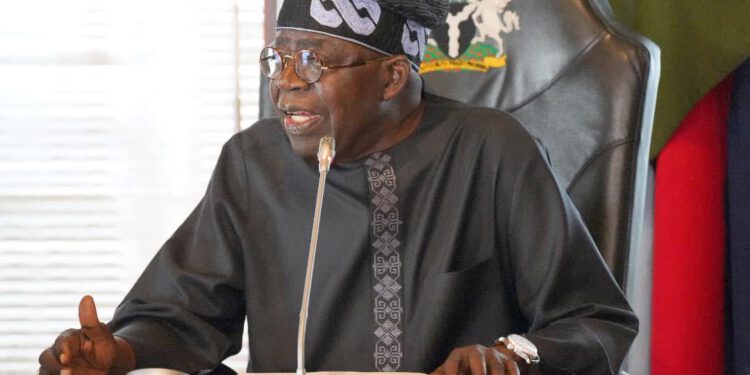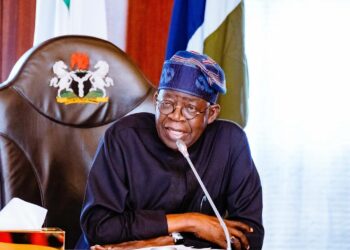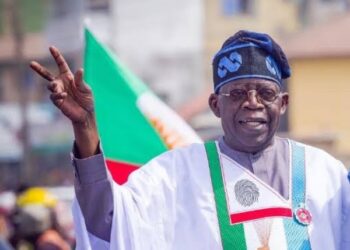Fitch Ratings has revised Nigeria’s credit outlook to ‘Stable’ from ‘Negative’, reflecting growing confidence in the economic reform agenda of President Bola Ahmed Tinubu’s administration. While the country’s long-term foreign currency issuer default rating remains at ‘B’, the outlook upgrade signals improved sentiment towards Nigeria’s macroeconomic management.
In its latest assessment, Fitch said the government’s decisive policy shifts since mid-2023—particularly in foreign exchange liberalisation, fuel subsidy removal, monetary tightening, and a halt to central bank deficit financing—have begun to improve macroeconomic credibility and reduce structural vulnerabilities.
“We are seeing clear signs of increased commitment to market-based reforms under President Tinubu’s administration,” Fitch stated. “While challenges remain, Nigeria’s trajectory has shifted toward stability and greater investor confidence.”
Foreign Exchange Reforms Bolster Stability, But Headwinds Loom
A major catalyst for Fitch’s outlook upgrade was the Central Bank of Nigeria’s introduction of a new FX matching platform and FX code in 2024, designed to enhance price discovery and transparency. Following a sharp 40% naira depreciation last year, these reforms helped narrow the spread between the official and parallel markets and revived investor confidence.
•Net FX inflows rose 89% year-on-year in Q4 2024, compared to just 8% in the same period in 2023.
•However, Fitch warns of short-term pressures ahead, including modest further depreciation of the naira as global uncertainties weigh on investor sentiment.
•Of particular concern is the newly imposed 14% U.S. tariff on Nigerian exports, which business leaders and analysts—including JPMorgan—say could erode FX earnings and renew exchange rate volatility.
Monetary Tightening Slows Inflation, But Price Pressures Persist
Despite tighter monetary policy, Nigeria’s inflation remains stubbornly high. Headline inflation stood at 23.2% in February 2025, based on a rebased Consumer Price Index. This is still significantly above the ‘B’ rating peer median of 4.3%.
To rein in inflation, the Central Bank has hiked interest rates by 875 basis points since February 2024, pushing the benchmark policy rate to 27.5%. Fitch expects the CBN to maintain a hawkish stance, projecting average inflation of 22% in 2025 and 20% in 2026, to preserve monetary stability.
External Buffers Rebuild Amid Reserve Pressures
Fitch also noted improvements in Nigeria’s external accounts. Gross foreign reserves climbed to $41 billion at end-2024, though they have since eased to $38 billion due to debt repayments—including a $1.1 billion Eurobond maturity due in November 2025.
•Nigeria recorded a current account surplus of $6.8 billion in 2024 (6.6% of GDP), aided by reduced import costs and formalised FX transactions.
•Net external reserves currently stand at $23 billion, while reliance on FX swaps has decreased significantly, now accounting for just 14% of gross reserves, down from 25% in late 2023.
Energy, Oil Output Recovery Provide Tailwinds
Nigeria’s energy landscape is also evolving. The Dangote Refinery is expected to ramp up production to 650,000 barrels per day (bpd) by mid-2025, from the current 550,000 bpd. This is expected to cut down fuel import dependence, which currently represents nearly a third of Nigeria’s total goods imports.
On the upstream side, oil production (excluding condensates) is forecast to reach 1.43 million bpd in 2025, up from 1.34 million bpd. However, output remains below pre-2019 levels, reflecting the lingering impact of underinvestment and pipeline disruptions.
Fiscal Pressures and Banking Sector Strains Persist
Despite progress on reforms, Nigeria’s fiscal outlook remains strained. Fitch projects a general government fiscal deficit of 4.2% of GDP over 2025–2026, driven by rising public sector wages, debt service obligations, and pre-election spending.
•Interest-to-revenue ratios remain among the highest globally—nearly 50% at the federal level and 30% overall, limiting fiscal flexibility.
•The banking sector is also feeling the heat, with non-performing loans at 4.9% as of November 2024. Fitch expects this figure to rise further in 2025 due to sustained inflation and high borrowing costs.
•Smaller banks may struggle to meet new capital requirements, potentially sparking a wave of mergers and acquisitions in the sector.
Governance Still a Key Constraint
Fitch cautioned that weak institutional capacity and governance shortfalls continue to weigh on Nigeria’s credit profile. The country ranks in the 19th percentile of the World Bank’s Governance Indicators, reflecting persistent issues with corruption, regulatory enforcement, and rule of law.
Despite these structural challenges, the outlook revision to ‘Stable’ signals renewed international optimism about Nigeria’s reform trajectory and economic prospects under the Tinubu administration. However, Fitch stressed that sustaining momentum—especially amid global economic turbulence—will be critical to preserving stability and unlocking long-term growth.





















